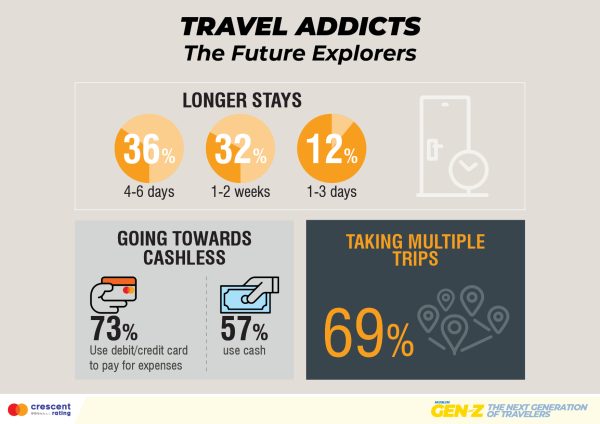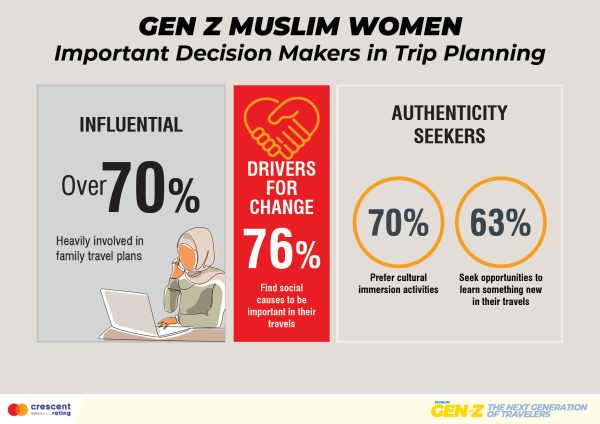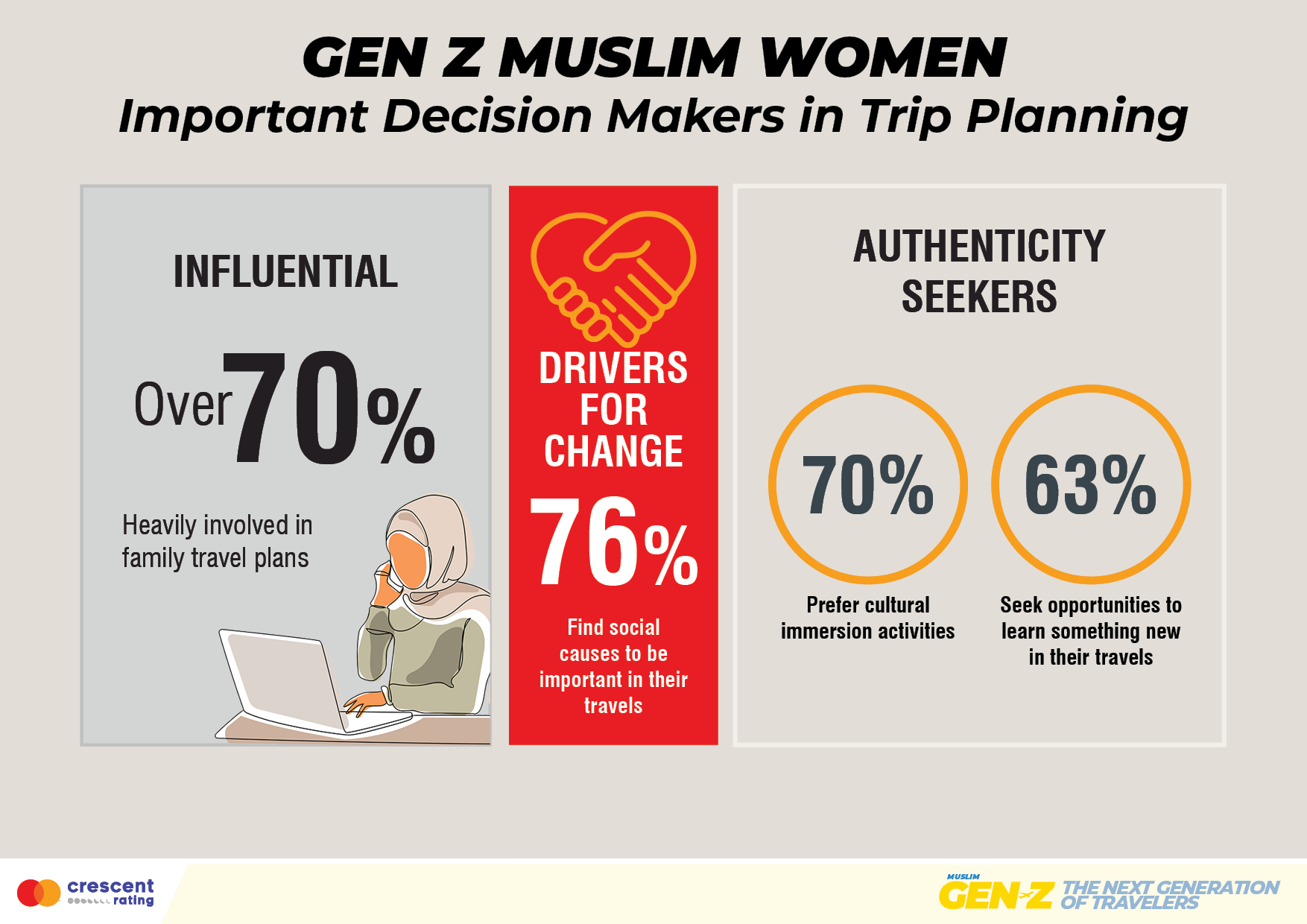SINGAPORE, 20 January 2023: Two-thirds of Muslim Gen Z (1) travellers are looking for cultural immersion in their chosen destinations, while nature excursions are prioritised as highly as more conventional “leisure seeking” pursuits, such as shopping and events.
They are also developing financial independence, with 32% paying for trips from their own pockets as opposed to 16% who rely solely on their parents. The findings come from the inaugural Mastercard-CrescentRating Muslim Gen Z: The Next Generation of Travellers report (2).

According to the report, the Muslim Gen Z population is actively looking to travel, with 69% planning to take two or more trips in 2023 and 32% wanting to stay at their destinations between one and two weeks.
Environmental enthusiasts
More importantly, almost half of the respondents (45%) identify themselves as environmental enthusiasts. Nearly a third are willing to minimise flying, 11% will pay for carbon offsets, and 14% will take holidays closer to home to avoid long-haul flights. In fact, when it comes to travel spend, they are known as intentional spenders, where 77% of Muslim Gen Z are willing to spend more on sustainable practices such as reducing air travel, participating in voluntourism (or volunteer tourism), and supporting local businesses.
Regarding payment methods overseas, 73% prefer a debit or credit card, while 57% prefer cash.
“Being the first generation born in the digital age, Gen Z travellers are often considered the true digital natives with exposure to the internet, social networks, and mobile devices from a very early age. Gen Z actively redefines what it means to travel. The report presents clear, actionable findings for tourism operators worldwide that can help them to capture this incredibly important demographic,” said CrescentRating and HalalTrip founder & CEO Fazal Bahardeen.

Muslim Gen Z women also emerged in the study as important decision makers, with over 70% heavily involved in planning for family travel. Almost 70% prefer cultural immersion activities such as experiencing local traditions, heritage, and cuisine. In addition, 63% seek opportunities to learn something new in their travels. This segment is also a driver for change, with 76% indicating social causes to be important in their travel plans.
Faith-based services are also important for Muslim travellers, with Muslim Gen Z identifying Halal food services, prayer facilities, and water-friendly washrooms (3) as “need-to-have” factors when considering destinations.
“We’ve seen that all over the world, consumers are making up for the lost time in travel due to the challenges over the last few years. They enthusiastically want to visit new places and discover new experiences while keeping sustainability top of mind, and this demand will influence consumer choice and spending significantly in 2023. Mastercard is proud of the partnership with CrescentRating in developing relevant research insights that help to build a more complete, nuanced understanding of Muslim travellers,” said Mastercard division president of Southeast Asia Safdar Khan.
This is the 24th report in the Mastercard-CrescentRating Muslim lifestyle reports series. Mastercard and CrescentRating have partnered for nine years to develop insights into Muslim travel that have enabled the travel industry to make more informed and strategic decisions. For past reports, including the annual Global Muslim Travel Index, ASEAN Travel Readiness and Ramadan & Eid Lifestyle, visit https://www.crescentrating.com/halal-muslim-travel-market-reports.html.
The Mastercard-CrescentRating Muslim Gen Z: The Next Generation of Travelers report can be accessed here: https://www.crescentrating.com/halal-muslim-travel-market-reports.htm.
1 Born between 1997 and 2012
2 The findings are based on a survey conducted from August 2022 to December 2022 with 550 Muslim Gen Z segments, of which 60% were from Indonesia, Singapore, Malaysia and Brunei. The remaining are from Albania, Angola, Anguilla, Armenia, Australia, Austria, Bahrain, Bangladesh, Bulgaria, Canada, Denmark, Egypt, France, Germany, India, Italy, Kenya, Mauritius, Netherlands, Nigeria, Norway, Pakistan, Palestinian Territories, Portugal, Saudi Arabia, Slovakia, South Africa, Sri Lanka, Turkey, United Kingdom, and the United States of America.
3 Examples of water-friendly facilities include washrooms fitted with water gadgets. For Muslims, water is essential to perform the ablution (ritual cleaning called wudu) to perform their daily acts of worship. The availability of innovative products such as travel bidets, some even collapsible, has made life easier for Muslim Gen Z travellers.







